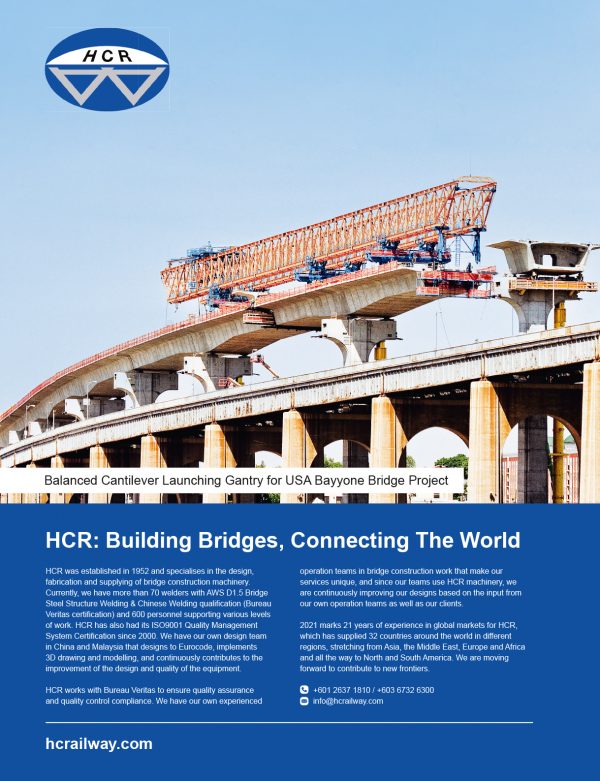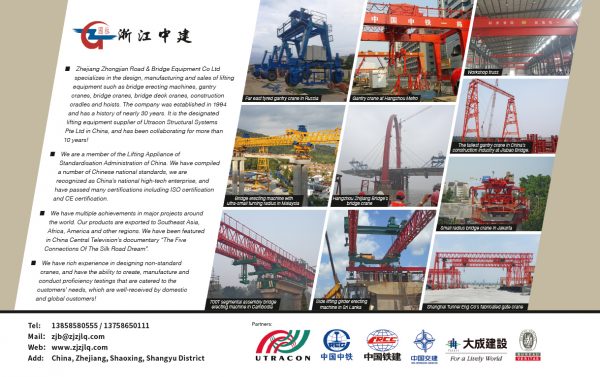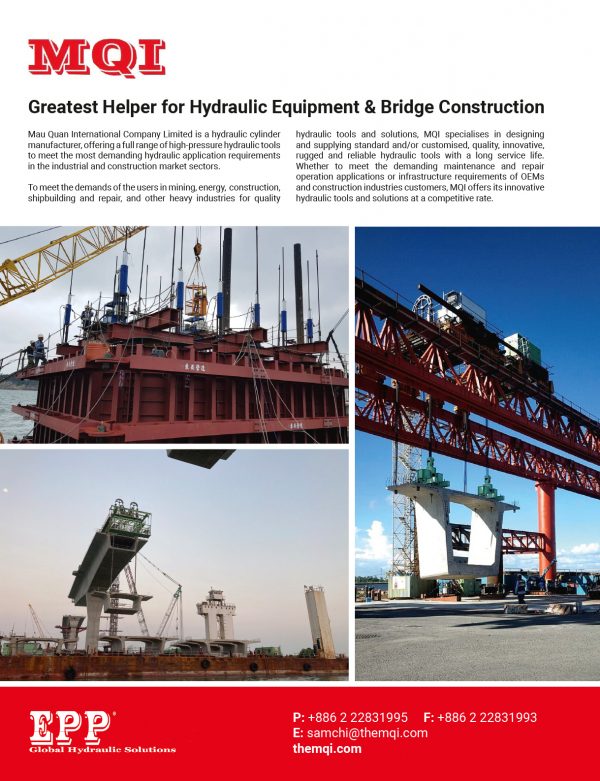While Singapore is a thriving commercial and transport hub for Asia, its diminutive size can sometimes inhibit the growth capacity of some businesses. Companies like Utracon, based in Singapore, eventually find they need to look further afield to fulfil their potential.
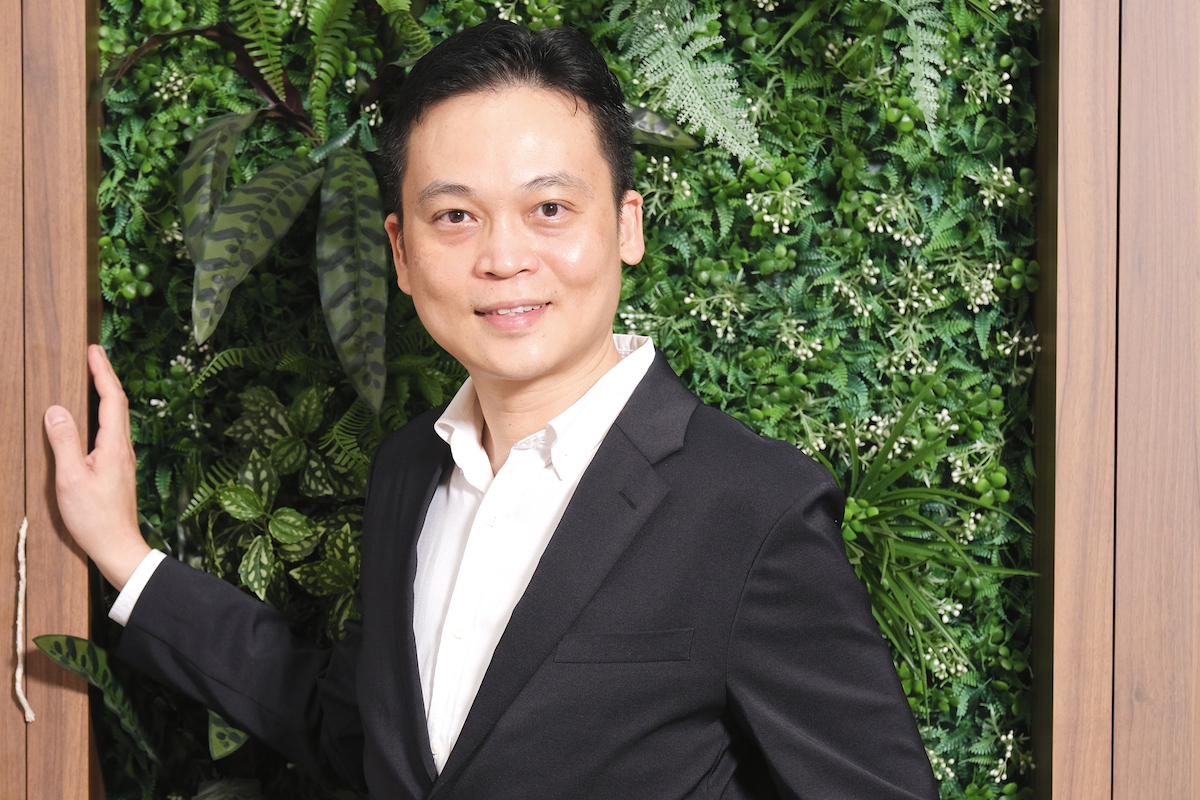
Utracon is an engineering firm specialising in prestress and precast concrete solutions, post-tensioning for buildings, bridges and tanks, specialist works for bridge construction, system formwork and more. It employs more than 100 staff in its Singapore head office, with many more in its subsidiary offices in the Asian region.
Incorporated in Singapore in 1998, Utracon was initially conceived to operate as a post-tensioning contractor in order to compete against the mostly European companies that dominated the sector.
A licensing agreement with Germany’s DYWIDAG saw it grow exponentially to become the largest post-tensioning contractor in Singapore and, in 2007, its success led to the formation of Utracon Overseas to take its services to the greater Asian region and further afield.
The 2021 Singapore Business Review National Business Awards recognised Utracon Overseas’ achievements in the heavy civil construction industry for its innovative solutions and technical approaches to complex civil engineering projects.
Director Khoo Jyh Hao has been with Utracon for nearly two decades, and since his appointment to that role he has built a sprawling, successful company across Asia. With a Bachelor of Engineering (Civil) from Universiti Teknologi Malaysia; a Master of Engineering from Nanyang Technological University; and a Master of Science in Sustainable Building Design from the University of Nottingham, he found his ideal career niche at Utracon.
The company reached a milestone in 2007 when it decided to venture overseas.
“I joined this company in 2002, right after my master’s degree in Singapore. I started as a design engineer, then I was moved to the marketing department, doing some marketing and business development work in Singapore,” Jyh Hao tells The CEO Magazine.
“The company reached a milestone in 2007 when it decided to venture overseas. I was given the opportunity to join this business unit and was made Director in 2008, when I was 31 years old. “We’ve set up permanent establishments in countries like Vietnam, Cambodia, Myanmar and Indonesia, and also South Asia, particularly in Sri Lanka. We’re also doing very well in Bangladesh and have completed projects in Africa, Middle East and Oceania as well.”
Tough competition
Developing a reputation in specialised construction techniques is both a time-consuming and demanding process, with client expectations of the highest order. Until Utracon’s rise in global engineering circles, most specialty contractors originated in Europe, especially in Switzerland, France and Germany.
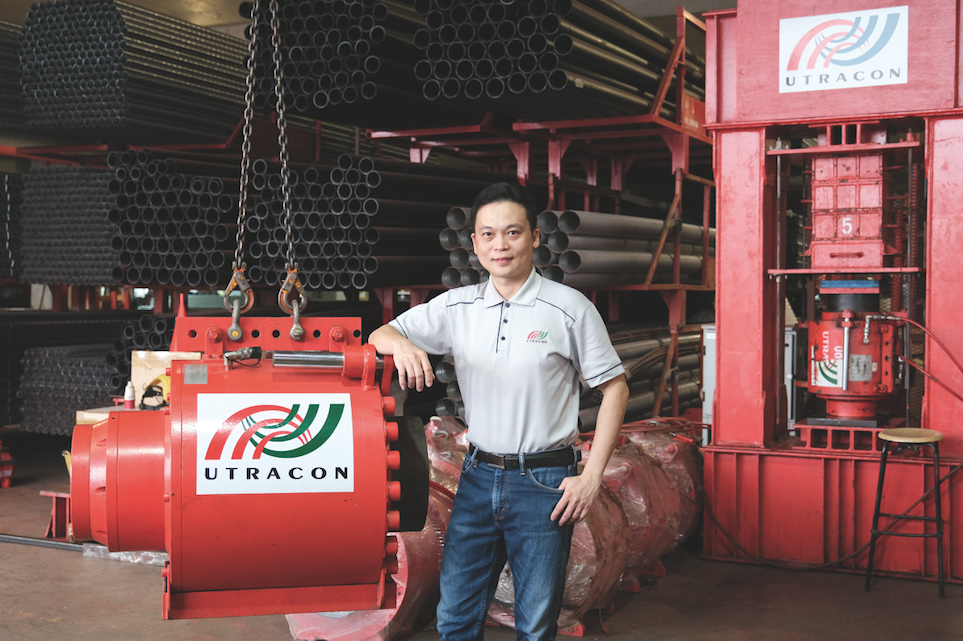
Its long-term vision is necessarily one of meeting and exceeding those competitive companies’ experience and expertise, and dominating the Asian region. Jyh Hao has no illusions about the demands of that vision, but is confident it’s within the company’s grasp.
“We are called a homegrown specialty contractor, but our goal is to make ourselves the market leader in Asia, especially South-East Asia. That’s our plan,” he shares.
“We have been working on it, and so far I would say we have been quite successful. That’s why we have many international clients, especially Japanese contractors. We will continue in this quest to be the market leader because, being an Asian homegrown company, we know the culture and the working styles of our clients.
“We have establishments in many countries and we are able to share the resources we have in terms of staff, equipment and material supplies. All this helps us to be the market leader. And, again, being a homegrown company, we can provide a better offer to our clients compared to European companies.”
Fighting COVID-19
Like every construction company around the world, the pandemic has disrupted Utracon’s projects, but Jyh Hao suggests its internal organisation has adapted very well to continue operations because of the company’s structure. With offices scattered around Asia, it is used to dealing remotely, and was well prepared when COVID-19 struck.
“We have been working remotely. Because I’m in the Singapore head office, we have to manage the overseas business remotely because it’s not very often that we can be with them,” he says.
“Of course, in terms of business management and our operations, it is not that disruptive to my overseas business units because we were used to this way of managing business in the past with online meetings and a remote working environment.
“The only difference is that, in the past, we sometimes travelled to meet our clients because they liked to meet in person, but now we don’t have a choice but to meet online to continue engaging with them and solving their problems. It hasn’t really caused problems in managing customer relationships.”
However, that doesn’t mean the business hasn’t escaped completely unscathed. “Of course, everything has been slowed down because of the pandemic,” Jyh Hao adds.
“Some projects have been delayed and some projects were actually suspended or shelved because, during these uncertain times, not many people want to invest heavily, especially in infrastructure development or private property development.”
Research and development plans
While the pandemic continues to rage, Utracon is taking the opportunity to revamp its internal operations and expand its reach. A significant part of the refurbishment is boosting its R&D efforts into new construction technologies that can improve efficiencies on construction sites, as well as look internally at its own business practices and analyse client and project data.
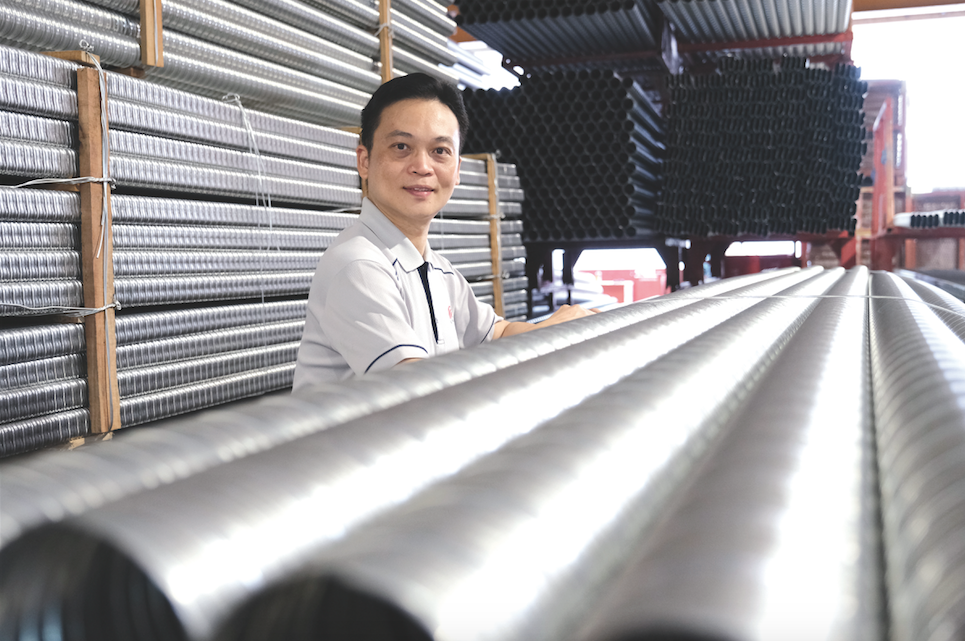
“Besides coming up with a new business profile, we also came up with a different business model,” Jyh Hao says. “We are now actively embarking on R&D. In the downtime through the pandemic, I know this is the best time to look into how we can make our business processes more efficient. Since last year, we’ve looked into digitising them, as well as our construction equipment. We have lots of raw data and we’re looking at how to turn it into knowledge or business insights through analytics tools.”
“We have to do things differently; it’s not easy to bring in staff, especially in Singapore, with all the border controls in place. Through this digitalisation process, we are hoping that we will be able to cope with our existing employees. This is how we ushered in 2021, and are still doing so now.”
As a specialist contractor, Utracon has developed unique equipment to increase productivity on its construction sites. It then came to the conclusion that it could also promote and sell it to other parts of the world, providing an opportunity to increase revenue. “It is how we try to survive in this kind of work environment,” Jyh Hao says.
Partnerships are key
By necessity, Utracon has developed close relationships with many construction companies and its end clients. Every delay or mistake brings huge cost blowouts and schedule disruptions. Jyh Hao believes the solution is trust and transparency in every relationship. “We have to deliver,” he asserts.
“So the key word is partnership, and we have to be open and frank with our vendors and fabricators. We must be very open-minded – trustworthiness is very important to our suppliers. We are always on time with payments, so our vendors and fabricators are very committed to working with us.”
Projects around the globe
Utracon’s many projects include the Pavilion Damansara and LRT 3, both in Malaysia; Jinja Bridge, Uganda; Colombo City Centre, Sri Lanka; Changi Airport Terminal 4 and Marina Bay Financial Centre, both in Singapore; Hip Heup Bridge, Laos; AEON Mall Binh Tan and the Bac Hung Hai Bridge, both in Vietnam; East-West Highway Project, Algeria; and Prapanca Viaduct, Indonesia.
Trust and transparency are also key in the company’s employee relations. Utracon Overseas’ staff includes the many different nationalities of its subsidiary offices, and Jyh Hao brings long experience in adapting work practices to accommodate people from different backgrounds.
“I’m used to working with people from different backgrounds and nationalities.” he confirms. “We have staff from 13 nationalities – Japanese staff and, of course, from the countries in South-East Asia and South Asia. Leading by example is very important. I always try to be a good role model. I lead my team by giving directions instead of instructions, because that kind of relationship is like treating them as a partner. Teamwork is very important; we ensure our staff feel that we are working as a team, as a family.”
Jyh Hao finds that giving direction allows employees to add their own thoughts and input as, he admits, staff members may sometimes have better ideas than their managers. “At the end of the day, we just need to look at the results and performance,” he reveals.
“When there is something very outstanding that you never expected, you compliment them. If someone is not doing so well, we give them guidance.” Regardless of their age and position in the company, Jyh Hao is confident that his employees don’t consider him so much a boss but more a co-worker.
He’s comfortable that this leadership style is one that motivates and inspires employees. “Of course, we have to show them how to get things done more productively or effectively,” he says.
“Sometimes, inspiration is simply through your body language. And they would have to be compensated fairly for whatever good things they’ve been doing.” Utracon’s Singapore headquarters include the company’s Academy of Prestressing, where training programs for all levels of staff are offered to build their expertise.
Education is an integral part of developing its employees’ careers and maintaining the company’s reputation as the region’s leading construction engineering firm. “That’s how I keep my team – not just the team in Singapore, but the teams in our subsidiaries in other countries,” Jyh Hao says.
“Our staff turnover rate is very low, and the loss of those who have been working with me for more than 10 years is very low. That’s why our whole staff works well as a team.”
Proudly supported by:
